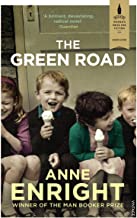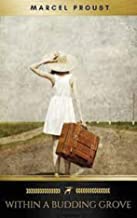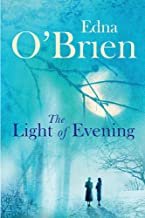There is a genre in modern fiction called “Coming of age”, designed
presumably to appeal to the “Young adult” whose type ought to feature among
such a tale´s characters. But, like most genres, authors who regularly tread
the potentially formulaic tramlines of readers´ expectations are themselves
usually somewhat beyond the age of consent and are therefore transporting
themselves via imagination or memory into an experience they may have
experienced in their own past, had related to them or simply imagined as an
ideal of a type, itself possibly even dysfunctional, since not every ending is
happy.
We all fall in love. Even ugly people fall in love, often successfully
and rewardingly. Socially perfected beauty often languishes in regretful
unhappiness, having made a false or compromised choice. Imagined “young adults”
can relive the irony of wrong decisions and false assumptions, but only when
directed from a distance of years that have taught by experience. At the time,
a whirlwind of experience and emotion, a cake-batter of hard and soft, liquid
and solid awaits mixing, let alone baking, and it has generally been licked and
gobbled by eager fingers well before it ever approached an oven. It is only
after the event that we can reassess how much of each ingredient we actually
added and whether, had the mix ever been properly prepared, it might have been
eventually tasty.
What is often lacking from tales of “Coming of age” is any truthful
assessment of how the first person is externally perceived. Perhaps we all possess
enough arrogance to think we can judge others from a position of permanent
personal neutrality, from a vantage where we ourselves are exempt from the
processes we apply to the rest of humanity. But not so Marcel Proust, whose
second volume of “A la recherche de
temps perdu” – “In search of lost time” is essentially a stream of
consciousness “coming of age”, a tale of long adolescent summer holidays at the
coast in Balbec, of chance encounters along Paris boulevards and of contractual
sex to pass the time. This is fiction of its time. A modern reader, to partake
of any experience on offer, must be willing to cast off the shackles of
contemporary mores, to ignore the imposed correctness of our age and be willing
to enter into both the culture and the values of its author, as he flits and
flirts from one potential assignation to the next, equally convinced, each
time, that this one will be for real, but forever replete with doubt and
question as to whether anything might ever come of anything. At least Marcel
Proust, from the privilege of his own maturity, is under no illusions of how
his own first person may have appeared to those young women, maidens perhaps,
whom he pursued.
In my case, what was physically evident might equally well have been due
to nervous spasms, to the first stages of tuberculosis, to asthma, to a
toxi-alimentary dyspnoea with renal insufficiency, to chronic bronchitis, or to
a complex state into which more than one of these factors entered. Now, nervous
spasms required to be treated firmly, and discouraged, tuberculosis with
infinite care and with a ‘feeding-up’ process which would have been bad for an
arthritic condition such as asthma, and might indeed have been dangerous in a
case of toxi-alimentary dyspnoea, this last calling for a strict diet which, in
return, would be fatal to a tuberculous patient. But Cottard’s hesitations were
brief and his prescriptions imperious. “Purges; violent and drastic purges;
milk for some days, nothing but milk. No meat. No alcohol.” My mother murmured
that I needed, all the same, to be ‘built up,’ that my nerves were already
weak, that drenching me like a horse and restricting my diet would make me
worse.
The author is hardly
the epitome of physical perfection, but he is nonetheless undeterred in his
pursuit of young ladies. It´s not every teenage youth, however, who can always
call on the services of a full-time maid for support. And not many of the
contemporary variety would admit the need for that support.
Sometimes my mother would stroke my forehead with her hand, saying:
"So little boys don't tell Mamma their troubles any more?" And
Françoise used to come up to me every day with: "What a face, to be sure!
If you could just see yourself! Anyone would think there was a corpse in the
house." It is true that, if I had simply had a cold in the head, Françoise
would have assumed the same funereal air. These lamentations pertained rather
to her 'class' than to the state of my health. I could not at the time discover
whether this pessimism was due to sorrow or to satisfaction. I decided
provisionally that it was social and professional.
And did it matter
what the first person actually looked like, whether health, bodily attributes
or even integrity were in adequate supply? There were, after all, copious
examples of birth-right being sufficient in itself in order to secure a man´s
desired married bliss alongside desirable beauty.
(This man's wife,
incidentally, had married him against everyone's wishes and advice because he
was a 'charming creature.' He had, what may be sufficient to constitute a rare
and delicate whole, a fair, silky beard, good features, a nasal voice, powerful
lungs and a glass eye.)
And I ask you, what in the world can he see in her? He must be a bit of
a chump, when all's said and done. She's got feet like boats, whiskers like an
American, and her undies are filthy. I can tell you, a little shop girl would
be ashamed to be seen in her knickers.
In speaking, Albertine kept her head motionless, her nostrils closed,
allowing only the corners of her lips to move. The result of this was a
drawling, nasal sound, into the composition of which there entered perhaps a
provincial descent, a juvenile affectation of British phlegm, the teaching of a
foreign governess and a congestive hypertrophy of the mucus of the nose
An age with
different values and assumptions is what we must enter. We may not always feel
at home. In fact, given the rarefied upper strata of society that we the
readers are expected to inhabit, we may rarely even feel we belong and be
constantly aware of a desire to head for the exit. The experience is always
challenging, not because it questions our presence, but merely because it takes
us to places we feel we ought not to be. But there is complexity in this
culture that a casual glance will not reveal. It is only when we engage with
this shared experience that we begin to feel that the assumptions of our own
age are not in the end very new.
"I've no intention of making fun, I assure you. Well, to continue,
she went up to one of these black fellows with 'Good morning,
nigger!'… " "Oh, it's too absurd!" "Anyhow, this
classification seems to have displeased the black. 'Me nigger,' he shouted
(quite furious, don't you know), to Mme. Blatin, 'me nigger; you, old
cow!'" "I do think that's so delightful! I adore that story. Do say
it's a good one. Can't you see old Blatin standing there, and hearing him: 'Me
nigger; you, old cow'?" I expressed an intense desire to go there and see
these Cingalese, one of whom had called Mme. Blatin an old cow. They did not
interest me in the least
And it is not only
the ideological baggage of the age that surrounds us. It is also the physical
reality of stuff, stuff we accumulate, stuff we assemble as definition of our
personality, as adjunct to personal history. And we are all prisoners of
fashion, locked in cupboards of clothes we never wear, perhaps should never
have bought, garage shelves of redundant gadgets, now rusting or moulding until
we attempt to salve a guilty conscience and cart them off to a charity shop
where someone not of our own social or economic class might patronisingly “make
use of them”. And it is our age, not that of Marcel Proust, that claims to be
“aware” of threats to the planet’s resources. And we assume it is our own age
that seeks something deeper, more abstract, more refined, more lasting… Are any
of us willing to admit how utterly materialistic we are?
However it may be, always when I think of that drawing-room which Swann
(not that the criticism implied on his part any intention to find fault with
his wife's taste) found so incongruous - because, while it was still planned
and carried out in the style, half conservatory, half studio, which had been
that of the rooms in which he had first known Odette, she had, none the less,
begun to replace in its medley a quantity of the Chinese ornaments, which she
now felt to be rather gimcrack, a trifle dowdy, by a swarm of little chairs and
stools and things upholstered in old Louis XIV silks; not to mention the works
of art brought by Swann himself from his house on the Quai d'Orléans - it has
kept in my memory, on the contrary, that composite, heterogeneous room, a
cohesion, a unity, an individual charm never possessed even by the most
complete, the least spoiled of such collections that the past has bequeathed to
us, or the most modern, alive and stamped with the imprint of a living
personality; for we alone can, by our belief that they have an existence of
their own, give to certain of the things that we see a soul which they
afterwards keep, which they develop in our minds.
Alas, what he was saying, how little, I felt, did it apply to myself,
whom all reasoning, however exalted it might be, left cold, who was happy only
in moments of pure idleness, when I was comfortable and well; I felt how purely
material was everything that I desired in life, and how easily I could dispense
with the intellect.
A recurring theme in Proust is reference to art and
music. Likening characters to faces in paintings gives physical form to the
words that inhabit the page and musical harmonies may give clue to personality.
…in Luini’s fresco, the charming Mage with the arched nose and fair
hair, to whom, it appeared, Swann had at one time been thought to bear a
striking resemblance.
…or in piano-playing, which she did not like to be too finicking, too
laboured, having indeed had a special weakness for the discords, the wrong
notes of Rubinstein.
…and when the narrator offers an assumption of is age,
we realise how particularistic are all assumptions of any age. Personally, I
have little time for the idea that scientific knowledge is a mere social
construct subject to change. Researched and documented “laws of nature” are
always incomplete and always specific to the conditions that apply to their
relevance. Gravity was not contradicted by relativity, but the ranges of its
applicability were more fully appreciated. If we read pre-relativistic science
that might assume gravity’s concept to be universal, we suffer contradictions
similar to those we experience when we read a different work written in a time
when the workings of mass-attraction were not quantified. How we apply this
knowledge, our appreciation of its relevance to our lives, this is perhaps
always governed by a combination of fashion and our personal misunderstanding
of the concept. In a different age, however, such adherence to social or
personal norms might be quite confusing, certainly surprising.
In view of the dampness of the air I had taken rather
more caffeine than usual.
But back at the plot, if such a diversion might be
admitted to the detail of such a life, this coming-of-age young-adult is really
hot on chat-up lines. He is utterly smitten by M. Swann´s daughter, Giberte. He
seeks out her company, diverts from his route through Paris just to walk the
street she has trod, cranes his neck at the promise of the merest glimpse of
her presence. And then, when presented with a drawing-room audience with the
heart-racing object of his desire, issues the hottest chat-up line that
Hollywood might ever have dreamed up.
“I thought, the other day, that the clock was slow, if
anything.”
His affections move on, eventually, his ardour unrequited,
his memory perhaps scarred for its entire adulthood. One learns to live with
such disappointment, to cope with the imperfection of reality. But memory is
permanent, even if the events that created its existence never actually
happened. And when they did, the power of memory to transform the future is
immense.
…the mother whose son has gone to sea on some perilous voyage of
discovery sees him in imagination every moment, long after the fact of his
having perished has been established, striding into the room, saved by a
miracle and in the best of health. And this strain of waiting, according to the
strength of her memory and the resistance of her bodily organs, either helps
her on her journey through the years, at the end of which she will be able to
endure the knowledge that her son is no more, to forget gradually and to
survive his loss, or else it kills her.
And without doubt we
are conscious of this process by which the formation of future-determining
memory via experience comes about as it actually happens, as it chips away at
the as yet unmade block that is our forming self. We can change. We often do.
We can take things for granted. We can shift our allegiances. We can ignore
certain consequences, whilst being obsessed with others, just like here when
our narrator appears to be thoroughly concerned with the effects that affection
transfer might have in relation to Giberte, but not even to consider the
consequences of his actions upon the lives of those he says he does not love.
… for when evening came I was always too wretched to stay in the house and
used to go and pour out my sorrows upon the bosoms of women whom I did not
love. As for seeking to give any sort of pleasure to Gilberte, I no longer
thought of that; to visit her house again now could only have added to my
sufferings. Even the sight of Gilberte, which would have been so exquisite a
pleasure only yesterday, would no longer have sufficed me. For I should have
been miserable all the time that I was not actually with her. That is how a
woman, by every fresh torture that she inflicts on us, increases, often quite
unconsciously, her power over us and at the same time our demands upon her.
With each injury that she does us, she encircles us more and more completely,
doubles our chains - but halves the strength of those which hitherto we had
thought adequate to bind her in order that we might retain our own peace of
mind.
But then, we find
him truly conscious of that which surrounds him. Its reality, or perhaps its
invented memory, is both vivid and permanent. There is no doubt here that the
detail comes via later reflection, since the teenager´s ability to apply
musical notation to sensory input was probably developed long after this
particular journey, years after music became comfortable under the fingers and
some time after reflection revealed the detail of exactly how it worked.
I was surrounded by the soothing activity of all those movements of the
train which kept me company, offered to stay and converse with me if I could
not sleep, lulled me with their sounds which I wedded - as I had often wedded
the chime of the Cambray bells now to one rhythm, now to another (hearing as
the whim took me first four level and equivalent semi-quavers, then one
semi-quaver furiously dashing against a crotchet); they neutralised the
centrifugal force of my insomnia by exercising upon it a contrary pressure
which kept me in equilibrium and on which my immobility and presently my
drowsiness felt themselves to be borne with the same sense of refreshment that
I should have had, had I been resting under the protecting vigilance of
powerful forces, on the breast of nature and of life, had I been able for a
moment to incarnate myself in a fish that sleeps in the sea, driven unheeding
by the currents and the tides, or in an eagle outstretched upon the air, with
no support but the storm.
And such is the power
of this process of filtration and reinterpretation of experience by memory that
when it clearly expresses the views of later years, it appears to be in the
mind of the teenager at the heart of the story. It is a context in which we
appreciate, via reflection in later solitude, what became of the life, how it
came about, how it was formed.
Nine tenths of the men of the Faubourg Saint-Germain appear to the
average man of the middle class simply as alcoholic wasters (which, individually, they not infrequently are)
whom, therefore, no respectable person would dream of asking to dinner. The
middle class fixes its standard, in this respect, too high, for the feelings of
these men would never prevent their being received with every mark of esteem
in houses which it, the middle class, may never enter.
"After all," I said to myself,
"possibly the pleasure that its author has found in writing it is not the
infallible test of the literary value of a page; it may be only an accessory,
one that is often to be found superadded to that value, but the want of which
can have no prejudicial effect on it. Perhaps some of the greatest masterpieces
were written yawning."
Pleasure in this respect is like photography. What
we take, in the presence of the beloved object, is merely a negative film; we
develop it later, when we are at home, and have once again found at our
disposal that inner darkroom, the entrance to which is barred to us so long as
we are with other people.
That our words are, as a general rule, filled, by
the person to whom we address them, with a meaning which that person derives
from her own substance, a meaning widely different from that which we had put
into the same words when we uttered them, is a fact which the daily round of
life is perpetually demonstrating. But if we find ourselves as well in the
company of a person whose education (as Albertine's was to me) is
inconceivable, her tastes, her reading, her principles unknown, we cannot tell
whether our words have aroused in her anything that resembles their meaning,
any more than in an animal, although there are things that even an animal may
be made to understand.
And so we are condemned to live the only life we have,
largely unaware of how it is perceived by others, eternally ignorant except by
speculation of what it might have meant to ourselves. We do not choose our
self. Neither do we choose our place or time of birth, though for some the
details of death are an option. Transporting ourselves into another mind, in
another place, inhabiting a different time reminds us of the minimal control we
have over our destiny, of the very events that might befall even the most
ordered existence. But certainly what does happen forms experience which we can
either ignore, hoping the next is what we always wanted, or we can store it in
a file of memory, so that later in life we can revisit that place and perhaps
reinvent it, thus transforming our existence into the life we thought we
deserved. Only then, perhaps, has that young adult truly come of age.









